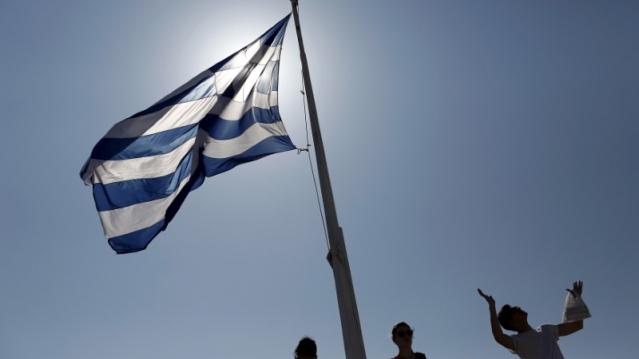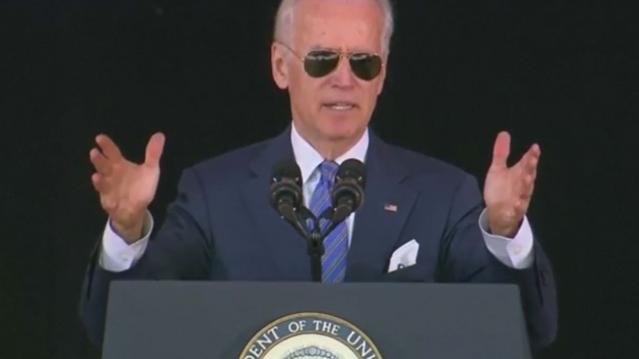Cancer Charities Exec Stole $187 Million for Personal Use
Donors who have given money to four of the largest cancer charities in the United States may have unknowingly been financing the lavish lifestyle of the C.E.O. who runs them—paying for luxury cruises, elite gym memberships instead of treatment for cancer patients.
That’s according to a suit filed Tuesday by the Federal Trade Commission as well as attorneys general in all 50 states, which alleges that James Reynolds deceived and defrauded donors out of more than $187 million between four of his charities—including the Cancer Fund of America, Cancer Support Services, Children’s Cancer Fund of America and the Breast Cancer Society.
Related: Medicare Recovers Nearly $28 Billion in Fraud Since 1997
The complaint says that the scheme started in the 1980’s. The charities told donors via telemarketing calls that their money would go toward medicine and transportation for cancer patients. However, most of the money actually went toward Reynolds’ personal indulges.
The complaint says that between 2008 and 2012, only three percent of donations actually went to cancer patients.
The FTC also accuses the organizations of cooking their books and reporting inflated revenues as well as “gifts in kind” that they said they distributed internationally.
The FTC said two of the charities—the Children’s Cancer Fund of America and the Breast Cancer Society plan to settle the charges out of court. The Associated Press reported that the Breast Cancer Society, posted a statement on its website Tuesday blaming increased government scrutiny for the charity's downfall.
"While the organization, its officers and directors have not been found guilty of any allegations of wrongdoing, and the government has not proven otherwise, our board of directors has decided that it does not help those who we seek to serve, and those who remain in need, for us to engage in a highly publicized, expensive, and distracting legal battle around our fundraising practices," the statement said.
Several executives who were also involved in the sccheme, including Reynolds’ son, have agreed to a settlement, which bans them from working in fundraising or charities. The two charities that settled, Breast Cancer Society and the Children’ Cancer Fund of America will be dissolved.
The settlement also orders a $65,664,360 judgment, which is the amount consumers donated between 2008 and 2012. Reynolds junior’s judgment will be for suspended once he pays $75,000. Meanwhile the legal proceedings for Reynolds’ senior and the two remaining charities are ongoing.
When Will the Consumer Spending Surge Finally Happen?

Economists have been waiting for a surge in consumer spending fueled by savings at the gas pump and a stronger job market boosting personal incomes. They’re going to have to keep waiting.
The Commerce Department on Monday said personal spending was essentially flat in April —it fell less than 0.1 percent — even as personal income rose a better-than-expected 0.4 percent. Americans made more money in April but they didn’t spend more. Instead, they socked it away, raising the savings rate — personal savings as a percentage of disposable income — from 5.2 percent in March to 5.6 percent in April.
Related: How Obamacare Could Be Squeezing Consumer Spending
The April spending picture was the reverse of that from March, when incomes growth stalled but spending rose. Overall, though, Americans still look to be hesitant about opening up their wallets.
“This report clearly indicates that the bounce back in March did not continue into April,” Chris G. Christopher, Jr., director of consumer economics at HIS Global Insight, said in a note to clients. “It is becoming blatantly obvious that the so-called consumer gasoline price dividend is not motivating the average American household to increase their discretionary spending in any meaningful manner.”
Energy prices have risen lately, but they are still down 20 percent from where they were a year ago, notes PNC Senior Macroeconomist Gus Faucher. Eventually, that should still translate to more spending as long as the job market recovery continues apace.
“Clearly, consumption is hardly booming, but the lag between declines in gas prices and the response in the spending numbers is long, typically six or seven months,” Ian Shepherdson, chief economist at Pantheon Macroeconomcs, said in a note to clients. “Gas prices did begin to fall rapidly until November, with the biggest single drop in January, so we don't expect to see consumption accelerate properly until the summer.”
For now, the economists — and the economy — keep waiting.
Top Reads from The Fiscal Times:
- What's Next for Oil Prices? Look Out Below!
- We Just Went Through the Worst Month Since the Great Recession
- Boomers, It's Time to Cash Out of This Bubble
Medical ID Theft is a Way Bigger Problem Than You Think

Forget Target and Home Depot. You may be risking identity theft every time you visit the doctor’s office.
Medical ID theft, in which thieves steal your Social Security number and health insurance info in order to fraudulently obtain medical services or treatment, is skyrocketing.
More than 90 percent of healthcare organizations have had a data breach, and 40 percent had more than five data breaches in the past two years, according to a report released last month by ID Experts. Attacks by criminal organizations are up 125 percent over the past five years. Medical identities are worth far more on the black market than financial identities.
The study estimates that data breaches may have cost the industry $6 billion in the last two years. The scariest stat for consumers: Half of organizations surveyed have little or no confidence in their ability to detect all patient data loss or theft.
Related: Now You Could Lost Your Medical Identity, Too
Victims of medical ID theft spend thousands to restore their credit and correct inaccuracies in their medical records, and unlike banks and credit card issuers, most healthcare organizations offer no protection services for victims.
In addition to the financial toll, there are health risks to victims of medical ID theft. If someone steals your identity and receives treatment that gets added to your medical records, doctors may have incorrect information regarding your health history and allergies.
It’s difficult to prevent medical ID theft, but monitoring your credit and closely reading your healthcare bill and explanation of benefits notices can help you catch it early.
Can a Few Chocolate Euros Stop a Grexit?

German Finance Minister Wolfgang Schaeuble has clashed repeatedly with Yanis Varoufakis over Greece's debt and economic reforms since the leftist Syriza party took power in January, pledging to end austerity and renegotiate the bailout terms.
In an interview with the children's television program "Logo" on German broadcaster ZDF last week, a girl reporter gave Schaeuble a supportive handful of the chocolate coins.
"I'll take a few for my Greek colleague, he also needs strong nerves," Schaeuble replied.
Greece hopes to secure a cash-for-reforms deal with its lenders this week. But after four months of tortuous negotiations no breakthrough is in sight. Without a deal Athens risks default or bankruptcy in weeks.
A Made-Up Holiday That Could Help Your Kids Go to College

Marketers are great at making up holidays—and who doesn’t love having an excuse to eat donuts on National Donut Day or pizza on National Pizza Day?
Most of these special days, however, tend to take a toll on both our wallets and our waistlines. Today may be an exception: The personal finance and college saving industries have dubbed today 529 Day (Get it? 5/29), a day to celebrate saving for college via tax-favored 529 plans.
Americans could benefit from any impetus to save more for higher education. The average American family that’s saving for college put away about $2,600 last year and has a total of just over $10,000 socked away for education, according to Sallie Mae’s annual How America Saves for College report. That’s the lowest amount since the survey began in 2009 — or about enough to send one kid to college for one semester at today’s prices.
Related: Top-rated 529 Plans Probably Are Not For You
Many states are “celebrating” the day with everything from waived enrollment fees to discounted admission to local baseball games. (Each plan is sponsored by a state but run by financial firms.) Check out this interactive map to find out if your state is offering any incentives today.
Contributions to a 529 plan are made after federal taxes, but the money grows tax-free as long as the proceeds are used for education costs. Some states also offer tax breaks on contributions.
The average cost of attending public college this year is $19,000. For private college it’s $33,000, according to The College Board. So there’s no time like today to start saving.
The 5 Funniest 2015 Commencement Speakers

At commencement ceremonies, every speaker gets to be a comedian, even comedians. The competition was tough, but at least two of the best lines compiled by The Washington Post, came from politicians.
“I stand here humbled, gracious and completely naked under this robe.”
--Maya Rudolph, Tulane University
“The UVA community has some experience with being defined by outsiders. It has been said that a rolling stone gathers no moss. I would add that sometimes a rolling stone also gathers no verifiable facts or even the tiniest morsels of journalistic integrity.”
--Ed Helms, University of Virginia
“Tisch graduates, you made it. And you’re f----ed. The graduates from the College of Nursing, they all have jobs. The graduates from the College of Dentistry, fully employed. The Leonard N. Stern School of Business graduates, they’re covered. The School of Medicine graduates, each one will get a job. The proud graduates of the NYU School of Law, they’re covered. And if they’re not, who cares? They’re lawyers.”
--Robert DeNiro, Tisch School of the Arts, New York University
…[Yale was] one touchdown away from beating Harvard this year for the first time since 2006. So close to something you’ve wanted for eight years. I can only imagine how you feel. I can only imagine.”
--Vice President Joe Biden, Yale University
Those of you who are graduating this afternoon with high honors, awards and distinction, I say, ‘Well done.’ And as I like to tell the C students, ‘You, too, can be president.’”
--former President George W. Bush, Southern Methodist University
